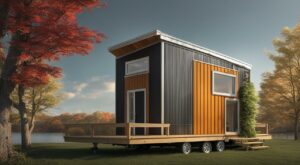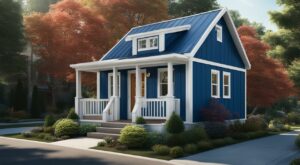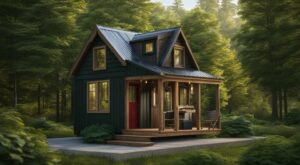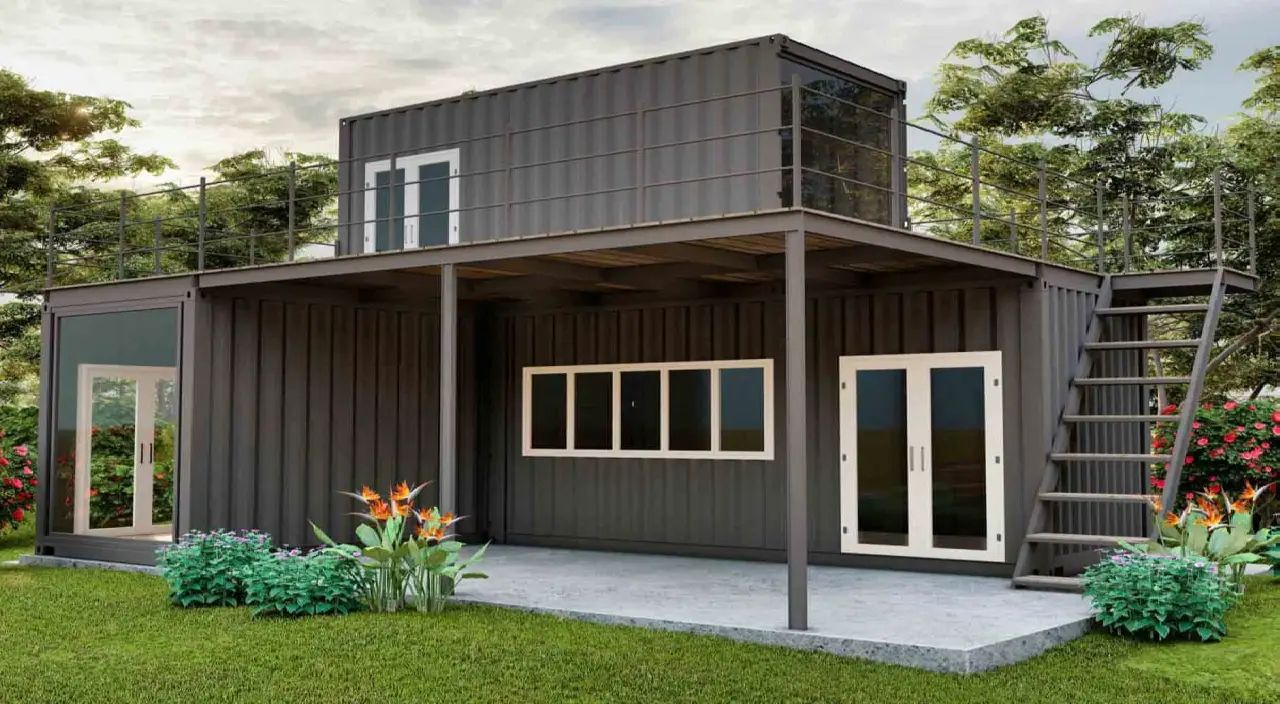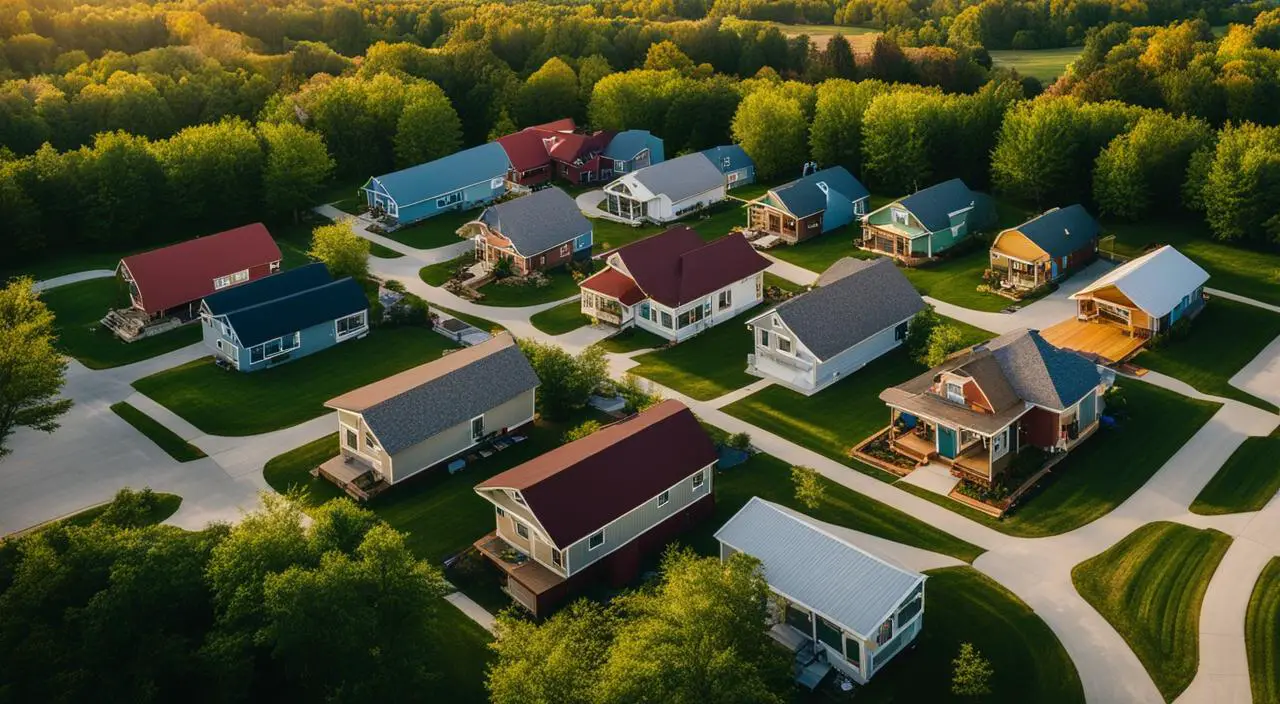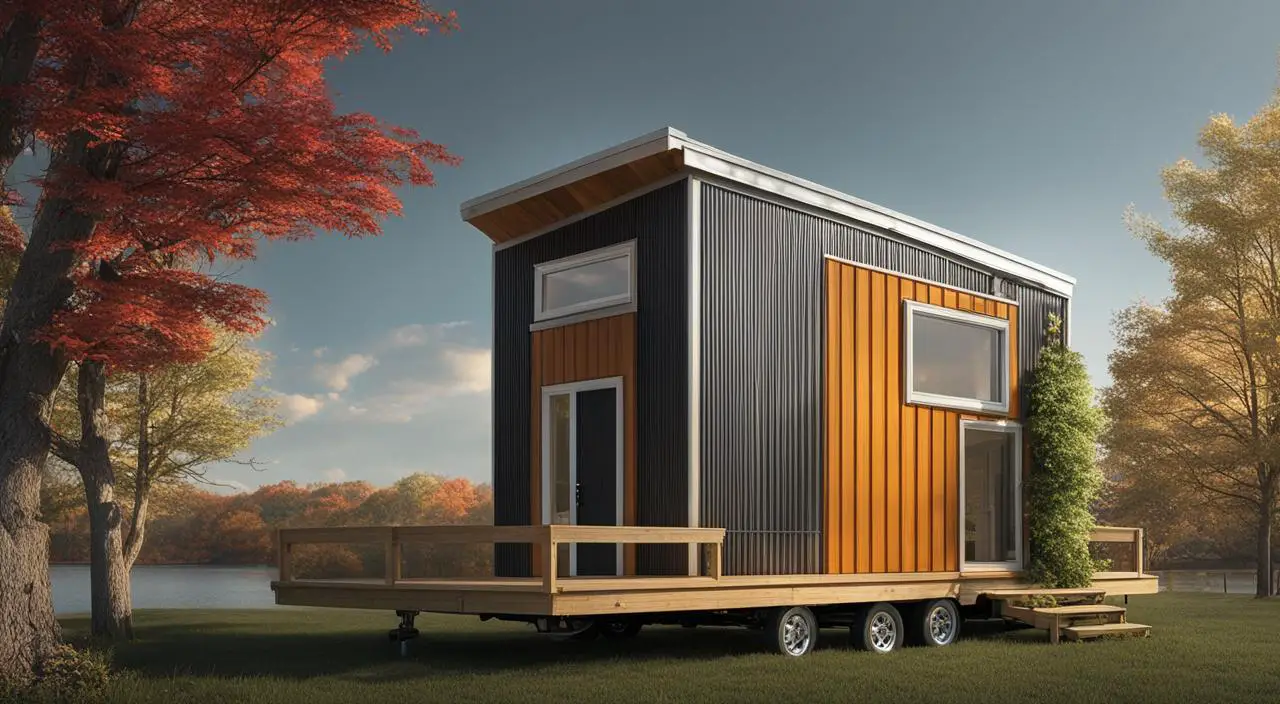Your cart is currently empty!
Tiny House Regulations New Jersey: A Complete Guide
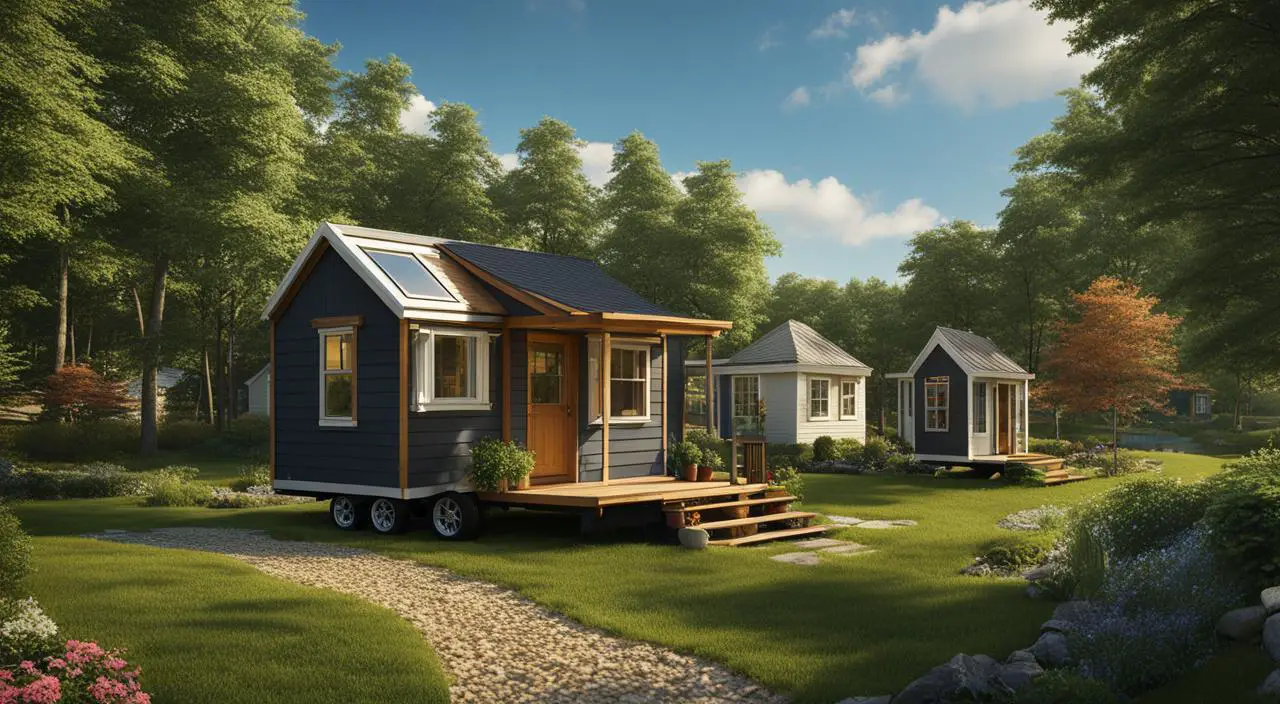
Affiliate Disclaimer: This post may contain affiliate link or links
Tiny house regulations New Jersey: The tiny house movement has been gaining popularity across the United States over the past decade, and New Jersey is no exception.
Tiny houses, sometimes referred to as small houses or micro houses, are a way for individuals to downsize and simplify their living space while also reducing their carbon footprint.
Contents
However, with the increasing interest in tiny houses, it’s important to understand the regulations and laws specific to New Jersey.
New Jersey has specific regulations in place for tiny houses, and it’s essential to navigate these regulations to construct and live in a tiny house legally.
This comprehensive guide will provide an overview of tiny house regulations in New Jersey, including zoning laws, building codes, permitting processes, and land use policies that affect the placement and use of tiny houses in the state.
Understanding Zoning Laws and Building Codes in New Jersey
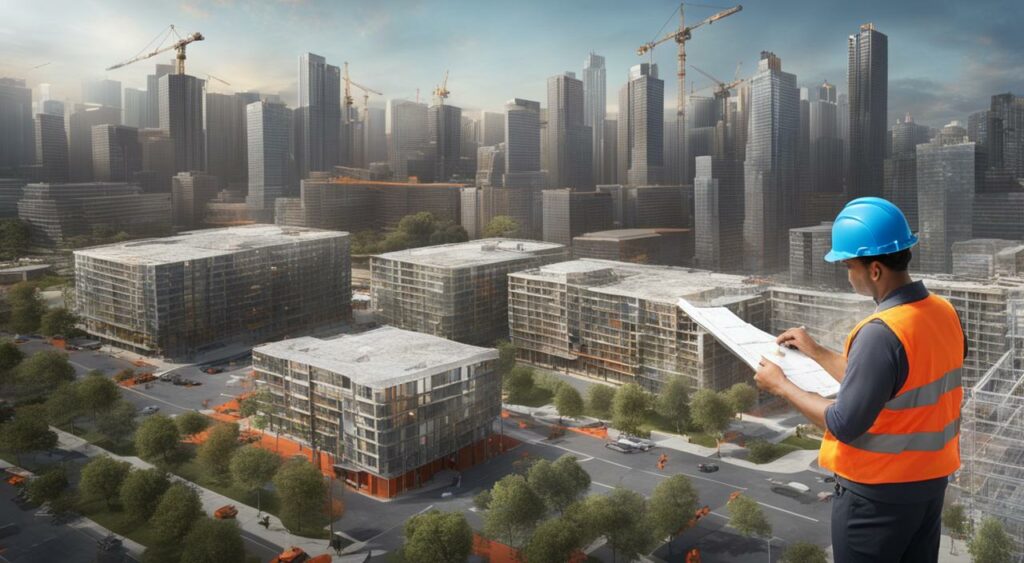
When it comes to constructing a tiny house in New Jersey, it’s essential to understand the zoning laws and building codes that apply to your project.
Building a tiny house requires complying with the same building codes that apply to traditional homes, but with specific requirements and considerations that are unique to smaller living spaces.
Zoning Laws: Zoning laws define how land can be used and whether a tiny house can be built on a particular property.
The zoning laws vary from town to town, so it’s crucial to research the specific regulations that apply to the location where you’re planning to build your tiny home.
You’ll need to determine if the area is zoned for residential use and if there are any additional requirements for tiny homes, such as minimum lot sizes or setbacks.
Building Codes: Building codes regulate the construction of buildings and are typically set by cities or counties.
They ensure that buildings are safe and structurally sound.
When constructing a tiny house, it’s essential to comply with building codes related to foundation requirements, electrical and plumbing systems, and ceiling height.
In New Jersey, the 2018 International Residential Code (IRC) is used as the statewide building code standard.
Square Footage: One of the most critical considerations for building a tiny house in New Jersey is the minimum square footage requirement.
The IRC states that a dwelling unit must have at least 120 square feet of living space and additional space for a bathroom and kitchen.
However, many towns have higher minimum square footage requirements for residential structures.
It’s crucial to research the specific requirements for your location and ensure that your tiny house meets or exceeds these standards.
Foundation Requirements: The building code requirements for a tiny house foundation depend on whether the house will be mobile or permanently affixed to the ground.
If the tiny house will have a foundation and be set in place like a traditional home, it must meet the same foundation requirements as any other residential structure in New Jersey.
If the tiny house will be mobile, it must comply with the American National Standards Institute (ANSI) standards for mobile homes.
Composting Toilet: Another unique consideration for tiny houses is the use of a composting toilet, which doesn’t require a septic system.
In New Jersey, composting toilets are allowed, but the installation and use of these systems must meet specific requirements outlined in the state’s building code.
Before starting construction on your tiny house, it’s essential to research the specific zoning laws and building codes that apply to your location. This will ensure you comply with all regulations and avoid any potential issues during the construction process.”
Navigating the Permitting Process for Tiny House Construction in New Jersey
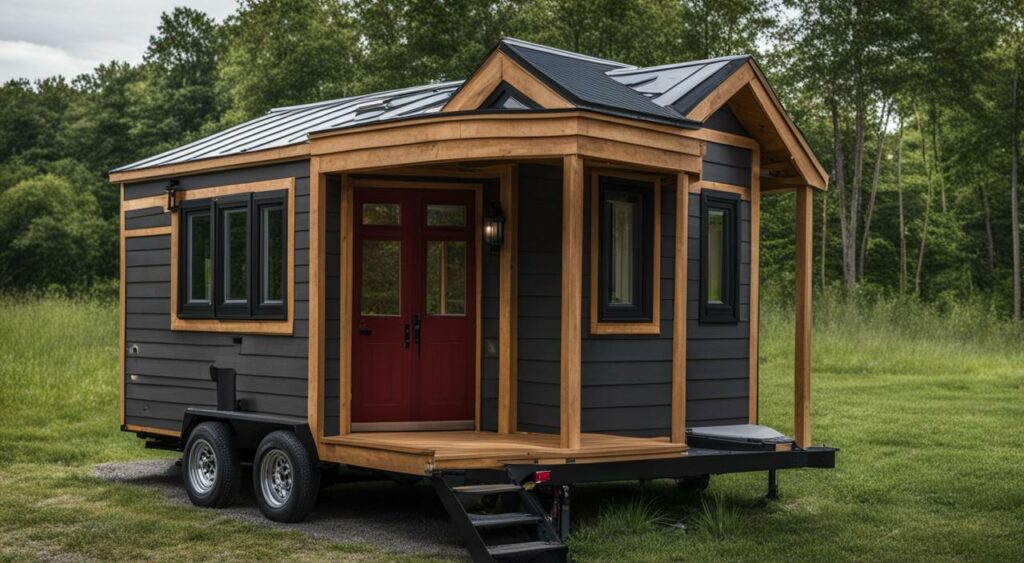
Before beginning construction on a tiny house in New Jersey, it’s important to understand the permitting process. Depending on the location and details of the construction, different permits may be required.
First, it’s important to understand the difference between a building permit and a zoning permit. A building permit ensures that the construction of the tiny house itself meets the requirements set by the local building code.
This includes factors such as size, foundation, and safety features.
A zoning permit, on the other hand, ensures that the tiny house meets the local zoning laws related to land use and occupancy.
If you’re planning to hire a contractor for your tiny house construction, they will likely take care of obtaining the necessary permits.
However, if you plan to do the construction yourself, you will need to apply for the permits yourself or hire a professional to assist you.
Some tiny house enthusiasts choose to build their homes using “sweat equity,” meaning they provide the labor themselves in order to reduce costs.
If this is the case, it’s important to research the specific permits required for owner-built structures in your area.
| Permit Type | Description |
|---|---|
| Building Permit | Ensures that construction meets building codes and safety standards. |
| Zoning Permit | Ensures that the tiny house meets local zoning laws regarding land use and occupancy. |
| Owner-Built Permit | Required for owner-built structures that are not built by licensed contractors. |
It’s important to note that the permitting process can vary depending on the municipality.
Some areas may have stricter requirements than others, and the length of time it takes to obtain permits can also vary.
It’s important to do your research and plan accordingly in order to avoid any delays or issues during the construction process.
In conclusion, whether you plan to hire a contractor or take on the construction yourself, it’s important to understand the permitting process for tiny houses in New Jersey.
Taking the time to research the specific requirements for your area can help ensure a successful and smooth construction process.
Land Use Policies and Compliance with New Jersey Tiny House Regulations
When it comes to tiny homes, land use policies can vary significantly from one state to another, and the same is true for New Jersey.
While the state doesn’t have specific zoning laws for tiny houses, there are municipal regulations on tiny houses that you need to comply with.
If you’re planning to live in a tiny house, you need to find out if your desired location allows it.
Some townships and municipalities restrict the use of tiny homes in residential areas, while others have no restrictions.
It’s essential to do your research and contact your local zoning department for information on tiny home restrictions in New Jersey. There are also compliance requirements with municipal regulations that you need to keep in mind.
Building permits, zoning permits, and inspections are all crucial aspects of constructing a tiny house in New Jersey.
Depending on your township or municipality, these may be required to build a tiny home and live in it.
Compliance with NJ Building Codes
Building codes are an essential consideration when constructing a tiny house in New Jersey. The state follows the International Residential Code (IRC) for all construction projects, including tiny houses.
While the IRC doesn’t refer explicitly to tiny houses, it does provide guidelines for residential structures. These guidelines cover critical aspects such as safety, ventilation, plumbing, and electrical systems.
When building a tiny house in New Jersey, you must meet the minimum building code requirements for the state, which include:
| Aspect | Code Requirements |
|---|---|
| Square footage | 100 square feet for one occupant; 50 additional square feet for each additional occupant |
| Foundation Requirements | Permanent foundation with tie-downs and anchor bolts |
| Composting Toilet | Acceptable, but must comply with local health codes and regulations |
While these requirements may seem daunting, compliance is essential to ensure your tiny house is safe and secure.
Overall, researching the land use policies and complying with the building codes and municipal regulations is crucial to building and living in a tiny house in New Jersey.
Tiny House Parking Regulations and Community Options in New Jersey
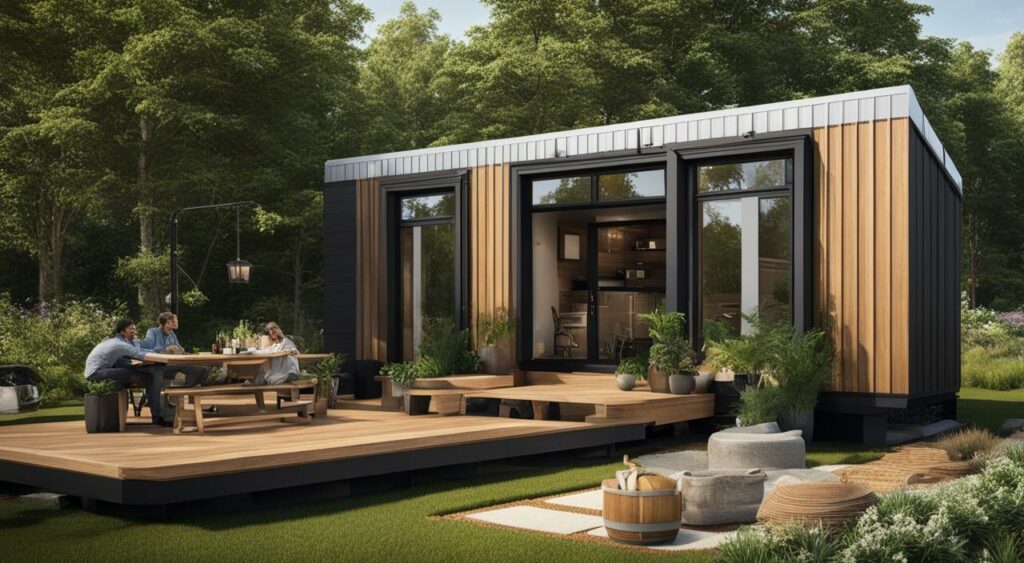
If you’re considering living in a tiny house in New Jersey, it’s important to be aware of the parking regulations and community options available in the state.
Tiny House Parking Regulations in New Jersey
Before you park your tiny home in New Jersey, you must first ensure that you comply with the state’s parking regulations.
The regulations will depend on whether your tiny home is classified as a recreational vehicle (RV) or a permanent dwelling.
If your tiny home is classified as an RV, you can park it in designated RV parks or campgrounds in New Jersey.
However, if you plan to park your tiny home on private property, you’ll need to ensure that the property is zoned for RV use and meets the requirements for RV parking, which vary by municipality.
If your tiny home is classified as a permanent dwelling, you’ll need to comply with the same zoning and building codes that apply to traditional homes in New Jersey.
This means that you’ll need to have a permanent foundation and meet minimum square footage requirements, which can be a challenge for tiny home enthusiasts who value mobility and minimalism.
Tiny House Community Regulations in New Jersey
If you’re looking to join a tiny home community in New Jersey, you’ll need to ensure that the community complies with the state’s land use policies and zoning laws.
This means that the community must be located in a zone that allows for residential use, and the tiny homes must comply with all applicable building codes and safety regulations.
One community option available in New Jersey is the Escape RV Village, located in West Berlin. This community consists of 35 RV pads, each with its own garden and outdoor living space.
The community also includes a clubhouse, a fitness center, and access to a nearby lake for swimming and fishing.
Another community option is Tiny Estates in Elizabethtown, which features a variety of tiny homes for rent or purchase. The community includes a yoga studio, a food truck park, and a communal fire pit for residents to gather around.
All tiny homes in the community comply with local zoning laws and building codes, ensuring a safe and legal living environment for residents.
Overall, if you’re interested in living in a tiny house in New Jersey, there are options available for both parking and community living.
However, it’s important to thoroughly research and understand the regulations and requirements in order to make informed decisions about your living situation.

Conclusion
Overall, building and living in a tiny house in New Jersey can have its challenges, but with proper planning and understanding of the regulations, it is possible to make the dream a reality.
While zoning laws and building codes can be strict, they exist to ensure the safety and well-being of individuals and communities. It is crucial to research and comply with these regulations before beginning any tiny house project.
Regulations for Tiny Houses
Regulations for tiny houses vary by state and municipality, but in New Jersey, there are specific laws that govern the construction and placement of these dwellings.
It is essential to understand these regulations before beginning any tiny house project and to ensure compliance throughout the process.
Zoning for Tiny Houses in New Jersey
Zoning laws dictate where tiny houses can be placed in New Jersey and the regulations that apply to their use.
It is essential to research and understand these laws to avoid any potential legal issues and to identify viable locations for a tiny house.
Building Codes for Tiny Houses in New Jersey
Building codes for tiny houses in New Jersey can be strict, and it is crucial to understand and comply with these codes throughout the construction process to ensure the safety and habitability of the dwelling.
In conclusion, while navigating the regulations for tiny houses in New Jersey can be challenging, there are options available for those interested in the tiny house lifestyle.
Understanding zoning and building codes, obtaining the necessary permits, and complying with all regulations can help bring the dream of living in a tiny house to fruition in the Garden State.
Other related articles
- Tiny House Laws Indiana: Unlocking the Secrets
- Tiny House Laws in Massachusetts: The Ins and Outs
- Tiny House Laws Colorado: A Friendly Guide
- Tiny House Laws in Florida: Everything You Need to Know
- Understanding Tiny House Laws in Virginia: A Quick Guide
- Tiny House Laws Wisconsin: Understanding The Law

Arc. Joseph Benson the CEO of Free tiny homes, Free Tiny Homes is a free, open-source, collaborative resource for anyone interested in building their own tiny home…


